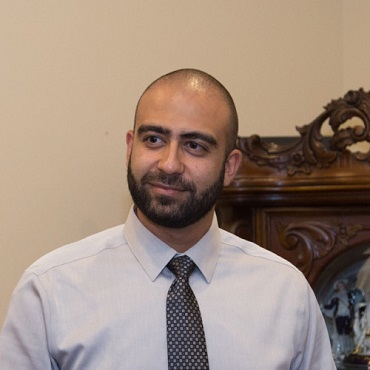Scientific Program

Sarkissian H, Hudson-McKinney M & Hoffman-Simen J
Western University of Health Sciences, USA
Title: Interprofessional team approach to geriatric dementia care
Biography:
Dr. McKinney is the Associate Chair, of the Department of Physical Therapy Education at Western University of Health Sciences in Pomona, California, USA. Dr. McKinney received her masters and doctorate in physical therapy from the University of Southern California. She is Board Certified Neurological Specialist (NSC) by the American Board of Physical Therapy.
Dr. Janice Hoffman-Simen is an Associate Professor of Pharmacy Practice at Western University of Health Sciences in Pomona California, USA. She is a Certified Geriatric Pharmacist and a Fellow of the American Society of Consultant Pharmacists (ASCP). She received her pharmacy doctorate (Pharm.D). from the University of Southern California and completed a Clinical/Administrative Psychiatric Pharmacy Practice with an emphasis in geriatrics residency at the University of Maryland, Baltimore. Dr. Hoffman-Simen received a second doctorate in Education (EdD) in Organizational Leadership from the University of La Verne. Professionally, she has received accolades from the Commission for Certification in Geriatric Pharmacy (CCGP), Excellence in Geriatric Practice Award recipient.
Harry Sarkissian has received his Bachelors in Biology from California State University, Northridge and PharmD at Western University of Health Sciences (WesternU), Pomona, Ca. He is a currently a resident at WesternU working under his director Dr. Janice Hoffman.
Abstract
According to the World Health Organization (WHO) on ageing in 2015, on average, people around the world are living longer. High income countries, such as Japan, have 30% of their population over the age of 65 years and in the United States, over 10,000 people turn 65 every day - one person every 8 seconds. With the ageing population, the importance of heath care for the elderly cannot be understated. With the emphasis from birth disease in children shifting to those of chronic illness in old age the focus on prevention, appropriate medication use, and interprofessional teamwork becomes more important. This presentation will review the specific pharmacokinetic and pharmacodynamics changes that accompany the aging process as well as the role of an interprofessional geriatric team as an effective and efficient way to provide care for the elderly with dementia. WHO reports 47 million currently affected worldwide and that number is expected to grow to 75 million by 2030 with the global cost for care increasing to over $1.2 trillion. With this in mind, a better approach should be made to promote education, prevention, risk reduction and therapy. Upon completion of this workshop participants will have a better idea of how to provide team-based care for the elderly with dementia across the continuum of care levels.
- CO2 Capture and Sequestration
- Consequences of Drought on Rangelands & Forest
- Climate Change and Climatology
- Global Warming
- Earth Science
- Manifestation of Climatic Change
- Climate Change & Biodiversity
- Food Insecurity & Climate Change
- Environmental Toxicology
- Health Consequences & Adaptability Development
- Regenerative Agriculture to Reverse Climate Change
- Climate Change Challenges & Sustainability

